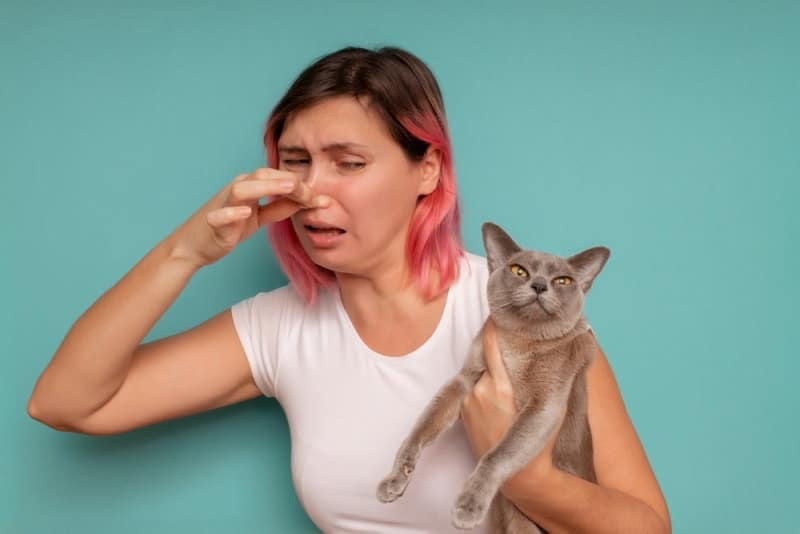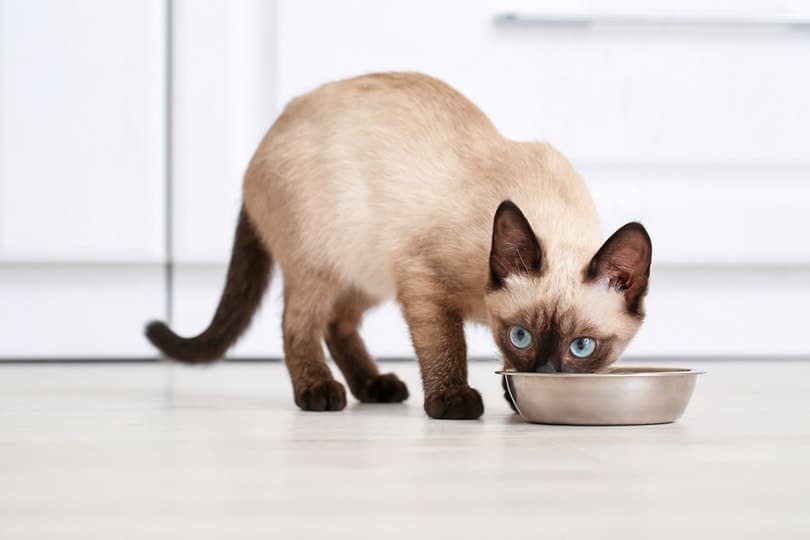If your cat’s breath seems to stink when you lift them up for a cuddle, there can be a few different reasons for this. A healthy cat’s breath shouldn’t smell unpleasant, so if you find yourself wincing when you smell your cat’s breath, it’s time to do something about it!
There can be a few different reasons for bad breath, or halitosis, in cats. Let’s take a look at them, as well as their solutions.
The 9 Possible Reasons for Bad Breath in Cats
1. Dental disease
One of the most common reasons for bad breath in cats is dental disease, or periodontal disease. You may see a build-up of plaque and tartar on your cat’s teeth, which can eventually lead to red and receding gums. Certain breeds, including the Burmese, Maine Coon, Siamese, and Persian, can be more likely to suffer from dental disease.
- Solution: Your cat may need a dental procedure to clean their teeth, as well as medication to soothe the pain and control the infection. Brushing your cat’s teeth daily in the future can help reduce the chance of plaque and tartar building up again, and you can also buy supplements to add to their drinking water.
2. They ate something stinky
Image Credit: Pixel-Shot, Shutterstock
If your cat has eaten particularly stinky food, which probably tasted delicious to them, then you can expect their breath might be a bit pungent for a couple of hours.
- Solution: Brush your cat’s teeth, give them a dental treat, or wait for the smell to pass after a few hours.
3. Oral trauma
If your cat chewed on something that caused an injury inside their mouth, this may have become infected and started to smell. If you notice any chewed electrical cables or other items recently, this may be the issue. Kittens are particularly fond of chewing things they shouldn’t!
- Solution: Take your cat to your veterinarian, and ask them to check the inside of your cat’s mouth for injuries. They may need to sedate them if there is an injury that requires cleaning and disinfection.
4. Diabetes
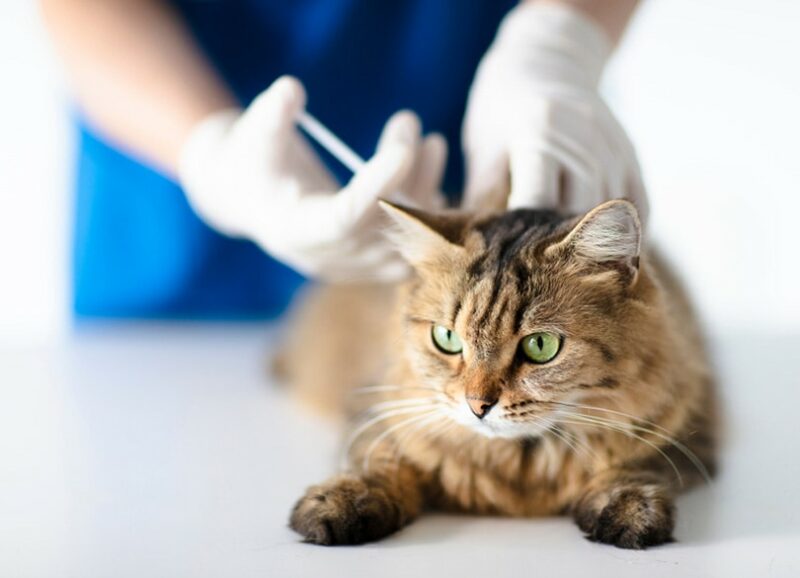
Bad breath that smells sweet can be an indication of feline diabetes. This will usually be accompanied by weight loss, excessive thirst, and excessive urination. Some cats that have had diabetes for a while may also suffer from damage to the nerves in their hind legs, resulting in a plantigrade stance. Burmese cats bred in Australia are at a higher risk of developing diabetes than most other cats.
- Solution: Your vet will test the concentration of glucose in your cat’s blood and urine. Diabetes can be treated using a range of therapies, including insulin injections and dietary management. Diabetic cats can usually go on to live long, healthy lives, as long as their diabetes is managed correctly.
5. Airway infections
Respiratory infections can cause bad breath. There’s a wide range of possibilities, including laryngitis, bronchitis, and lung diseases associated with feline immunodeficiency virus.
- Solution: If you notice that your cat is struggling to breathe normally and has bad breath, take them for an assessment with your vet. Cats are good at hiding any signs of distress, so bear in mind that you may not have noticed them having any breathing difficulties.
6. Gastrointestinal issues
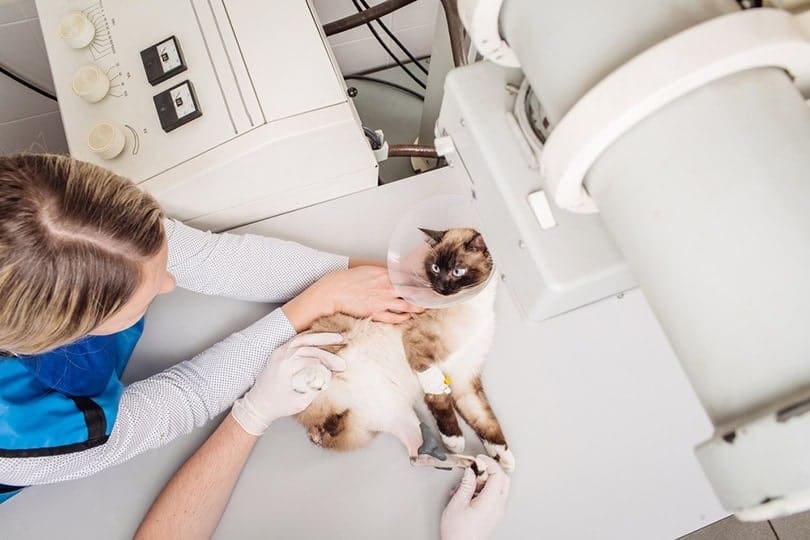
A blockage of the intestines can lead to vomiting, combined with breath that smells like poop. If you’re worried that your cat might have eaten something that could have blocked their intestines, like a toy or other non-food item, watch out for these symptoms.
- Solution: Gastrointestinal blockages are considered a medical emergency, so if your cat’s breath smells particularly bad and is combined with vomiting, take them to your vet as a matter of urgency.
7. Liver disease
Liver disease can cause vomiting and bad-smelling breath. This can be combined with the yellowing of your cat’s eyes and gums, loss of appetite, and a swollen abdomen.
- Solution: Your vet will carry out a range of diagnostic tests before reaching a diagnosis. They may need to conduct abdominal X-rays, bile acid analysis, a liver biopsy, or abdominal surgery. The prognosis for cats with liver disease is variable and unpredictable, but prompt treatment increases the chances of successful treatment.
8. Kidney disease
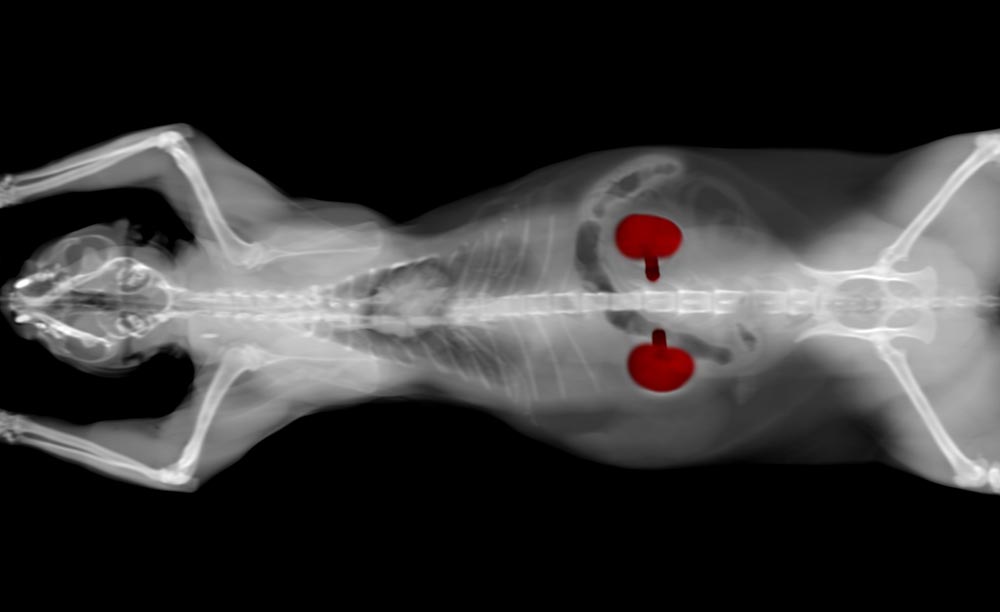
Chronic kidney disease can cause bad breath, which can have a smell similar to that of urine or ammonia. This is usually accompanied by symptoms like lethargy, extreme weight loss, and increased urination. Cats with kidney disease often drink more than usual, have pale gums, and look unkempt.
- Solution: Your vet will want to take samples of your cat’s blood and urine. There’s no cure for kidney disease, but it can be treated with several strategies, including dietary changes, increasing hydration, and a variety of medications.
9. Cancer
Oral cancer can result in bad breath, blood in the saliva, and difficulty swallowing, with a decreased appetite as a result. Cats can suffer from several forms of oral cancer. Squamous cell carcinoma is the most common one in cats.
- Solution: The veterinarian will collect a series of samples, including a fine needle aspiration or biopsy. The treatment might include surgical resection, radiation therapy, or chemotherapy.
How to Treat Stinky Breath in Cats
The first and most important thing to do is to find out the reason for your cat’s bad breath. If this is down to a medical condition, then follow your vet’s advice for ongoing treatment.
If like many other cats, your feline friend has dental disease, you can help prevent this from reoccurring in the future by brushing their teeth regularly. This might seem like a difficult task, but many cats will tolerate this just fine once they’ve gotten used to it.
Start by allowing your cat to lick a small amount of cat-specific toothpaste off your finger. These toothpastes come in a variety of flavors designed to appeal to cats.
Once your cat is comfortable with this stage, you can start to gently touch your cat’s teeth with their toothbrush, rewarding them with a treat regularly.
As they become comfortable with this, you should be able to start brushing your cat’s teeth for very short periods of time. Gradually increase the time that you brush their teeth for, until you can brush all their teeth.
Brushing your cat’s teeth every day is the gold standard, but aim for at least a couple of times per week, and remember that every brushing session will help!
You can also use water supplements, and dental treats designed to help clean plaque from your cat’s teeth.
Wrapping it up
Stinky breath in cats is often caused by dental disease, but it can also be caused by more serious problems, including liver disease and mouth cancer. Whatever the cause, prompt veterinary attention will help you work out the best way to help your cat.
Plus, clean teeth make for fresh breath, meaning snuggles with your cat will be even better than before!
Featured Image Credit: Stanislaw Mikulski. Shutterstock

